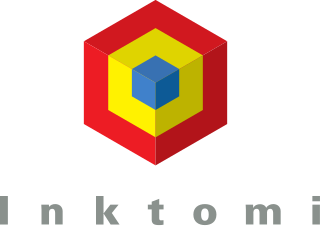The topic of this article may not meet Wikipedia's general notability guideline .(March 2011) |
Kasenna was a video on demand company based in California that was spun off of Silicon Graphics in 2000. [1] It was acquired by Espial in 2008. [2]
The topic of this article may not meet Wikipedia's general notability guideline .(March 2011) |
Kasenna was a video on demand company based in California that was spun off of Silicon Graphics in 2000. [1] It was acquired by Espial in 2008. [2]

Streaming media is multimedia that is delivered and consumed in a continuous manner from a source, with little or no intermediate storage in network elements. Streaming refers to the delivery method of content, rather than the content itself.

Inktomi Corporation was a company that provided software for Internet service providers (ISPs). It was incorporated in Delaware and headquartered in Foster City, California, United States. Customers included Microsoft, HotBot, Amazon.com, eBay, and Walmart.

Video on demand (VOD) is a media distribution system that allows users to access videos without a traditional video playback device and the constraints of a typical static broadcasting schedule. In the 20th century, broadcasting in the form of over-the-air programming was the most common form of media distribution. As Internet and IPTV technologies continued to develop in the 1990s, consumers began to gravitate towards non-traditional modes of content consumption, which culminated in the arrival of VOD on televisions and personal computers.

Extensible Messaging and Presence Protocol is an open communication protocol designed for instant messaging (IM), presence information, and contact list maintenance. Based on XML, it enables the near-real-time exchange of structured data between two or more network entities. Designed to be extensible, the protocol offers a multitude of applications beyond traditional IM in the broader realm of message-oriented middleware, including signalling for VoIP, video, file transfer, gaming and other uses.
WapTV now Miniweb was the name given to the company which originated the WTVML as a content format for the delivery of Interactive TV applications using Internet Servers. The system is an Interactive television technology platform comprising a mobile browser, a markup language, and a significant collection of associated software tools and services.
HCL Sametime Premium is a client–server application and middleware platform that provides real-time, unified communications and collaboration for enterprises. Those capabilities include presence information, enterprise instant messaging, web conferencing, community collaboration, and telephony capabilities and integration. Currently it is developed and sold by HCL Software, a division of Indian company HCL Technologies, until 2019 by the Lotus Software division of IBM.

Havok is a middleware software suite developed by the Irish company Havok. Havok provides a physics engine component and related functions to video games.

GameSpy was an American provider of online multiplayer and matchmaking middleware for video games founded in 1996 by Mark Surfas. After the release of a multiplayer server browser for the game, QSpy, Surfas licensed the software under the GameSpy brand to other video game publishers through a newly established company, GameSpy Industries, which also incorporated his Planet Network of video game news and information websites, and GameSpy.com.

Internet Protocol television (IPTV) is the delivery of television content over Internet Protocol (IP) networks. This is in contrast to delivery through traditional terrestrial, satellite, and cable television formats. Unlike downloaded media, IPTV offers the ability to stream the source media continuously. As a result, a client media player can begin playing the content almost immediately. This is known as streaming media.
Oracle Fusion Middleware consists of several software products from Oracle Corporation. FMW spans multiple services, including Java EE and developer tools, integration services, business intelligence, collaboration, and content management. FMW depends on open standards such as BPEL, SOAP, XML and JMS.
Joost was an Internet TV service, created by Niklas Zennström and Janus Friis. During 2007–2008 Joost used peer-to-peer TV (P2PTV) technology to distribute content to their Mozilla-based desktop player; in late 2008 this was migrated to use a Flash-based Web player instead.

Virgin TV is a digital pay cable television service in the United Kingdom, owned by Liberty Global (50%) and Telefónica (50%) after the merger its UK businesses to form Virgin Media O2. Its origins date from NTL and Telewest, formerly two of the UK's largest cable operators, which merged on 6 March 2006. All NTL:Telewest services were rebranded as Virgin Media in February 2007. Since the acquisition of Smallworld Cable in 2014, Virgin is the sole national cable TV provider in Great Britain. Currently about 51% of UK households have access to Virgin's network, which is independent from BT's Openreach network.
TelVue Corporation is a digital media company that develops broadcast solutions for multiple platforms including television, over-the-top content, Internet streaming, and mobile devices. TelVue has deployed broadcast systems and cloud-based services to media companies, professional broadcasters, and a network of municipally owned public, educational, and government access (PEG) cable TV channels. In addition, TelVue provides systems and services to colleges, universities and K-12 institutions. TelVue Corporation is a 100% employee-owned company.

Mediaroom is a collection of software for operators to deliver IPTV (IPTV) subscription services, including content-protected, live, digital video recorder, video on demand, multiscreen, and applications. These services can be delivered via a range of devices inside and outside customers' homes, including wired and Wi-Fi set top boxes, PCs, tablets, smartphones and other connected devices – over both the operator's managed IP networks as well as "over the top" (OTT) or unmanaged networks.
Umbra is a graphics software technology company founded 2007 in Helsinki, Finland. Umbra specializes in occlusion culling, visibility solution technology and provides middleware for video games running on Windows, Linux, iOS, PlayStation 4, Xbox One, PlayStation 3, Xbox 360, Wii U, handheld consoles, and other platforms. In 2021, Amazon acquired Umbra.

Plex is an American streaming media service and a client–server media player platform, made by Plex, Inc. The Plex Media Server organizes video, audio, and photos from a user's collections and from online services, and streams it to the players. The official clients and unofficial third-party clients run on mobile devices, smart TVs, streaming boxes, and in web apps.
Founded in 2004 in New York City, Pando Networks was a managed peer-to-peer (P2P) media distribution company backed by Intel Capital, BRM Capital and Wheatley Partners. The company specialized in cloud distribution of games, video and software for publishers and media distributors and also operated a freemium consumer business for sending large files.

Leaf Group, formerly Demand Media Inc, is an American content company that operates online brands including eHow, livestrong.com, and marketplace brands Saatchi Art and Society6. The company also provides social media platforms to existing large company websites and distributes content bundled with social media tools to outlets around the web.
Vubiquity, Inc. is a Burbank, California-based provider of content monetization, distribution and processing technology used by entertainment and media companies. The company ensures its client's video content is properly formatted, licensed and tracked when shown on different media outlets, such as streaming services.
OnDemand is a brand name for a video-on-demand, London-based company owned by the On Demand Group, who provide mobile video services such as pay-per-view to over 25 million subscribers. Their product is sold through middleware to smart TV companies such as Panasonic.
Company profile on Business Weeks site: http://investing.businessweek.com/research/stocks/private/snapshot.asp?privcapId=95554